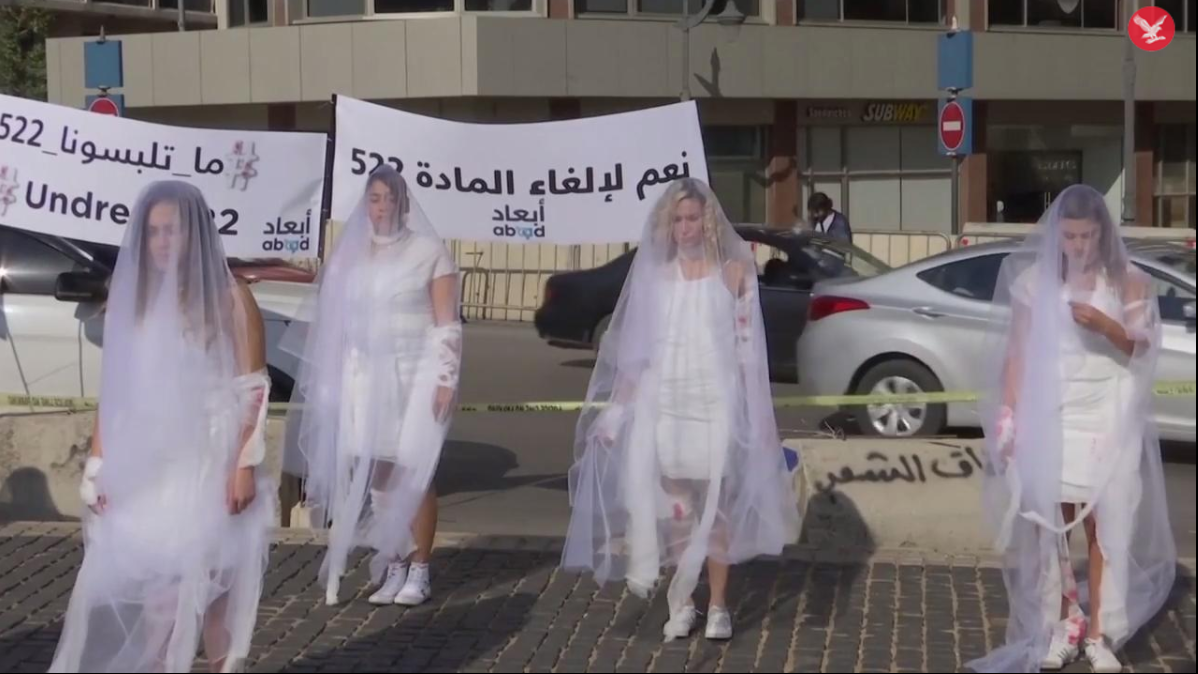Lebanon has repealed its 'marry your rapist' law
Archaic legislation contravening women's human rights finally abolished after years of campaigning

Your support helps us to tell the story
From reproductive rights to climate change to Big Tech, The Independent is on the ground when the story is developing. Whether it's investigating the financials of Elon Musk's pro-Trump PAC or producing our latest documentary, 'The A Word', which shines a light on the American women fighting for reproductive rights, we know how important it is to parse out the facts from the messaging.
At such a critical moment in US history, we need reporters on the ground. Your donation allows us to keep sending journalists to speak to both sides of the story.
The Independent is trusted by Americans across the entire political spectrum. And unlike many other quality news outlets, we choose not to lock Americans out of our reporting and analysis with paywalls. We believe quality journalism should be available to everyone, paid for by those who can afford it.
Your support makes all the difference.The Lebanese parliament has voted to revoke an article of the country’s penal code which allows a rapist to escape punishment for his crime so long as he marries the victim.
The decision comes after similar moves in Tunisia and Jordan in recent weeks.
Article 522 in Lebanon’s penal code is a statute from the 1940s which declared rape to be punishable by up to seven years in prison. The penalty for raping a minor or someone with mental or physical disabilities is higher - but the article’s loophole said that criminal prosecution is suspended if the rapist and survivor marry for a minimum of three years.
The law has been debated before parliament on several occasions in recent years, but Lebanon’s political gridlock often means important legislation fails to pass. On Wednesday,
The recent election of a new president after a more than two-year-long paralysis has somewhat energised Lebanon’s diverse Christian and Muslim political representatives, however - and activists stepped up their campaigning, optimistic something could be done.
Abaad, a local activist group, staged a protest outside parliament in which women wore wedding dresses stained with red paint to resemble blood last December, and in April, thirty-one wedding dresses representing each day of the month in which women could be subject to further abuse were strung up on Beirut’s Corniche.
Their patience has been rewarded.
“Amending the law is never an easy task, but we did it,” Suad Abu Dayyeh, feminist campaign group Equality Now’s Middle East and North Africa Consultant, said on the phone from Amman.
“This is a seachange. It is so positive and hopefully other countries in the region will capitalise on this growing consensus the law has to change.”
Similar marriage clauses are present in the law regarding sexual consent in many modern Muslim states. They are usually hangovers from colonialist interpretations of sharia, or religious law.
In recent years, legal discriminations against women have been the target of campaigners across the Middle East; Morocco, Tunisia and Egypt have repealed similar laws, and changes to the penal code are pending in Bahrain.
While there is still a lot of work to do, Ms Abu Dayyeh said, Lebanon’s decision is a powerful step forward in the region.
“There are many other battles. Civil law - how women are treated in marriage, divorce, custody and alimony cases - is next on our agenda. It will not be easy but we can build on all these small steps. We’ve had three victories in the space of a month. More are to come.”
‘Marry your rapist’ laws also still exist in several Latin American countries, the Philippines and Tajikistan.
Rape and sexual abuse affect nearly one billion women and girls over their lifetimes, UN data says.
Join our commenting forum
Join thought-provoking conversations, follow other Independent readers and see their replies
Comments